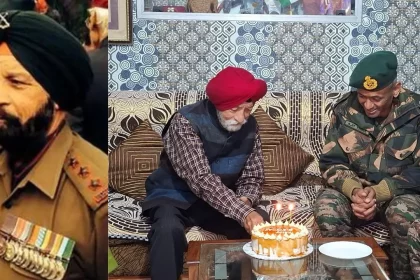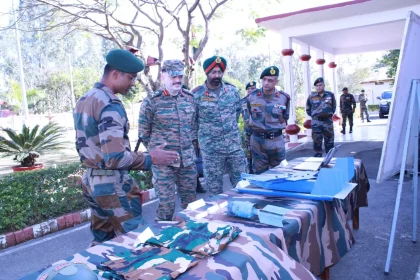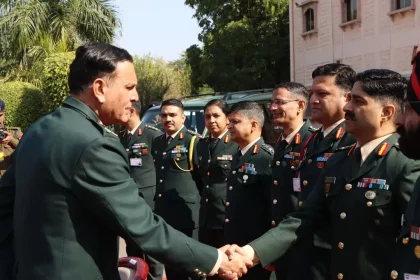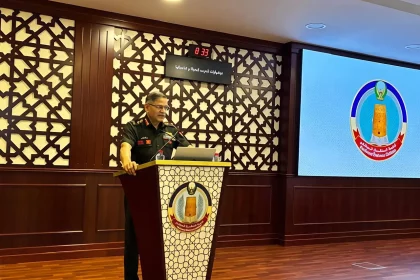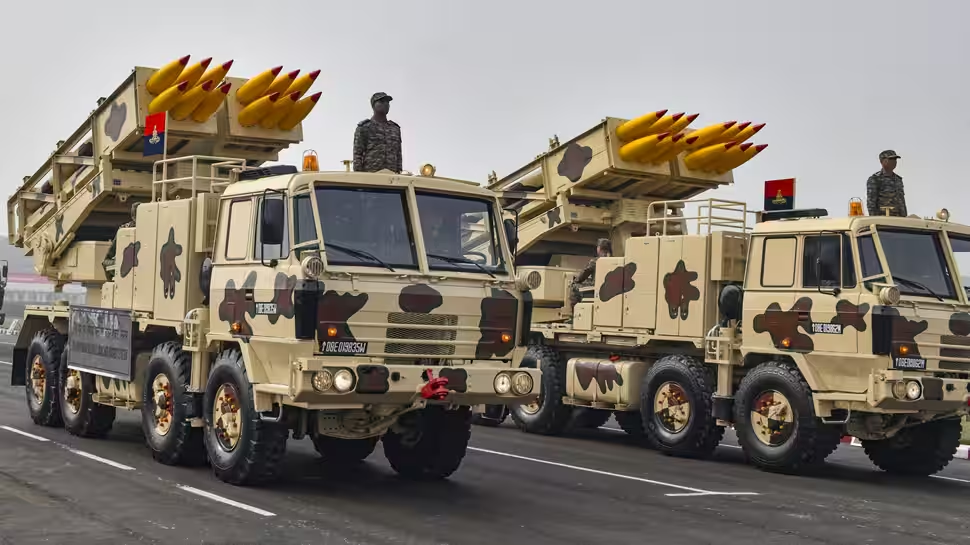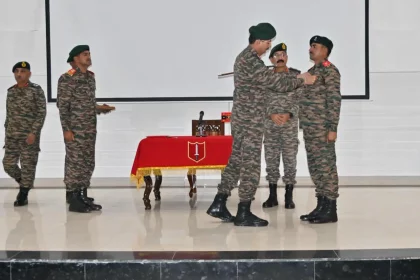Tiger Division Extends Birthday Greetings to Param Vir Chakra Awardee Bana Singh in Jammu
Tiger Division honours Param Vir Chakra awardee Bana Singh on his 77th birthday, celebrating his legendary bravery at Siachen.
Lt Gen Abhijit S Pendharkar Reviews Operational Readiness of Assam Rifles Units in Manipur
Spear Corps chief commends Assam Rifles’ Kakching and Kangla Warriors for operational readiness and effective community outreach in Manipur.
Lt Gen Dhiraj Seth Reviews Operational & Administrative Readiness at Konark Corps
Southern Command chief praises Konark Corps for indigenous innovation, drone integration, and robust welfare initiatives enhancing desert operational readiness.
COAS General Upendra Dwivedi Addresses Officers at UAE National Defence College
COAS underscores technology-driven warfare, senior leadership responsibility, and the importance of India–UAE and multilateral defence cooperation for regional stability.
Tata Advanced Systems Secures Indian Army Order to Upgrade Pinaka Weapon System
Order reinforces Pinaka MLRS readiness, boosts indigenous artillery sustainment, and strengthens Army–industry collaboration under Aatmanirbhar Bharat.
Lt Gen Devendra Sharma Reviews Training at Junior Leaders Wing, Belagavi
Army Training Command Chief underscores adaptive leadership, innovation, and technology-driven training to prepare junior leaders for future battlefields.

